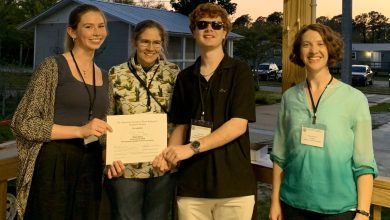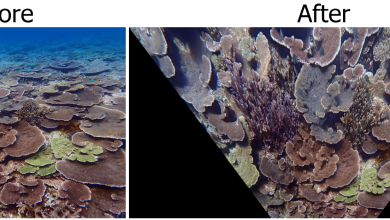Florida Tech Participates in BP Oil Spill Research Funding
MELBOURNE, FLA.—The Florida Institute of Oceanography (FIO) has dispersed $10 million from BP for research in the aftermath of the Deep Horizon Oil Spill. Just 27 projects were funded out of 233 proposals, and in two of them, Florida Institute of Technology is a key player. In one, a Florida Tech professor is the principal in research managed solely by the university.
Charles Bostater, a Florida Tech Department of Marine and Environmental Systems associate professor, received $307,500 as the university’s portion for his work. He’s on a team with two other universities and NOAA in a project involving mapping for forecasting and mitigation.
The scientists are using 4-D remote sensing to assess broad threats to Florida coastal ecosystems and those of adjacent states. The project combines satellite and airborne observations collected by remote sensing and contaminant measurements made from aboard ships.
“These assessments will help target coastal areas for the high spatial resolution digital imaging and mapping to be conducted using airborne cameras. Our ongoing historical satellite time series studies, from 1993 to the present, provide a context for assessing any changes,” said Bostater.
The team’s reports will build on mapping tools generated since the blowout incident.
“We expect this work to lead to large-scale subsurface oil detection. It should also help us to understand the impact of the contaminants along the coasts of the Gulf and Atlantic states and beyond, and help assess environmental impacts and plan mitigation strategies,” added Bostater.
In work closer to land, Richard Aronson, head of the Florida Tech Department of Biological Sciences, is solely in charge of a $193,500 project. He’s examining the spill’s effects on the animal communities that inhabit the highly productive salt marshes and submerged aquatic vegetation of Florida and Alabama.
“I’ll measure the direct and indirect impacts and explore the effects of oil
flow on the spawning stocks of species that rely on marshes for nursery habitat,”
he said. Aronson will address a key goal of the BP/FIO program—to conduct baseline studies and impact assessments, creating a basis for long-term monitoring.
Aronson will compare assemblages of fish and mobile invertebrates at six sites in Florida and Alabama—some impacted by the oil spill and some not.
“This is an important first step in longer-term studies of this unprecedented large-scale environmental disturbance,” said Aronson.




